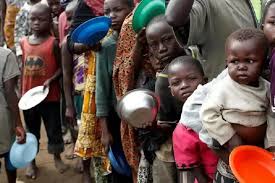
United Nations agencies have alerted that nearly 55 million people in West and Central Africa face severe food shortages in the coming months, driven by escalating prices that have deepened a food crisis. This warning was issued in a joint statement by the World Food Programme (WFP), UNICEF, and the Food and Agriculture Organization (FAO), which noted that the number at risk during the June-August lean season has quadrupled in the last five years.
Economic challenges such as high inflation and stagnant local production, compounded by ongoing regional conflicts, are key factors exacerbating the crisis. Countries like Nigeria, Ghana, Sierra Leone, and Mali are expected to be the hardest hit. Prices of staple grains have surged significantly, rising from 10 percent to over 100 percent above the average of the past five years.
In northern Mali, the crisis is particularly acute, with thousands facing catastrophic hunger levels. “The time to act is now,” said Margot Vandervelden, WFP’s acting regional director for West Africa, urging increased collaboration to prevent further escalation and calling for investments in resilience and long-term solutions.
The crisis has also led to alarmingly high malnutrition rates, particularly among children, with millions under five acutely malnourished. Gilles Fagninou, UNICEF Regional Director, emphasized the need for comprehensive support encompassing nutrition, health, education, and protection to improve children’s lives sustainably. The region’s heavy reliance on food imports and high inflation exacerbate these challenges, highlighting the urgency for policies that enhance local food production and diversify economies.
